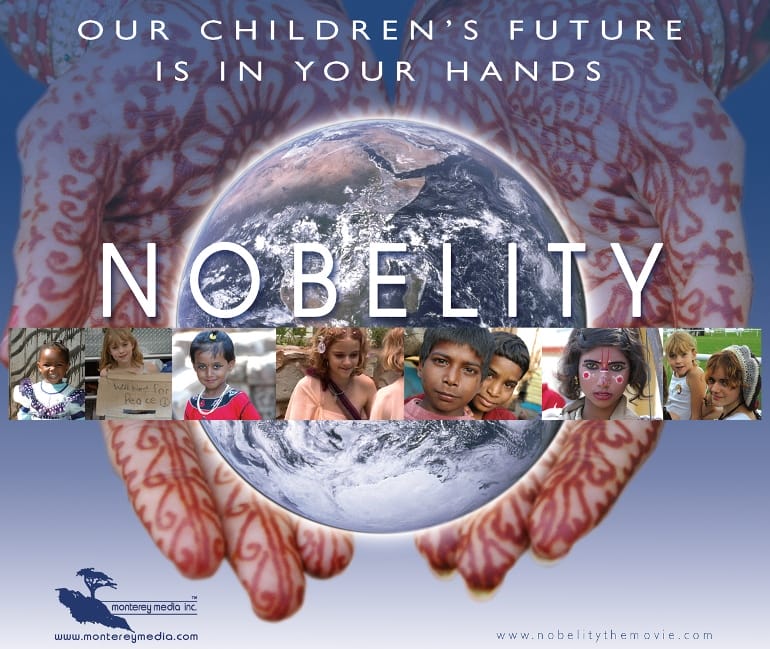The Essence of Nobelity

Sometimes the Nobel Laureates offer complex answers to Pipkin’s questions, despite him striving to make the concepts accessible to the layperson. But others, such as Jody Williams, who won her Nobel Peace Prize in 1997 for her work on banning land mines, keep it simple: “There is nothing magical about change. It is getting off your ass and caring enough to take the first step to contribute to change on an issue you care about.”
The predictions in the movie are clear-eyed and blunt: global warming, the drowning of Venice, the disappearance of Bangladesh, peak oil, global pandemics, deforestation, and the inevitable triggering of nuclear weapons. But ultimately the movie reflects an unshakable hope that disasters can be averted if we work together. The change we want to see begins with ourselves.
Several inspiring examples uplift the film, especially the green belt movement in Kenya pioneered by the late Wangari Maathai. She founded the movement in response to the needs of rural Kenyan women who reported that their streams were drying up, their food supply was less secure, and they had to walk further and further to get firewood for fuel and fencing. Maathai’s mission was to encourage the women to work together to grow seedlings and plant trees to bind the soil, store rainwater, provide food and firewood, for which they would receive a small monetary token for their work. Most recently, the green belt movement has extended its reach internationally to campaign on climate change, the importance of Africa’s rainforests in the Congo, and, with the United Nations Environment Programme (UNEP), to advocate for its Billion Tree Campaign.
OMTimes Magazine is one of the leading on-line content providers of positivity, wellness and personal empowerment. OMTimes Magazine - Co-Creating a More Conscious Reality



